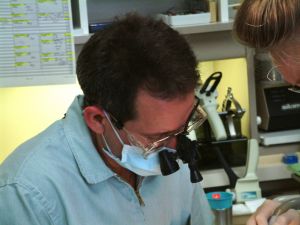Medical malpractice reform has been much discussed as a means of lowering healthcare expenditures, even though evidence has repeatedly suggested that malpractice is not a significant factor in driving costs.
Despite solid evidence that the vast majority of plaintiffs recover large malpractice payouts only in cases where they have been seriously injured, new proposals continue the fight to fix a system that is not really broken. 
Recently, for example, an opinion article was published in Bloomberg View arguing for a “safe harbor” for doctors in malpractice suits provided they followed “evidence-based” protocols. The suggestion is that we should move away from a local customary-based practice standard and instead judge doctors based on whether they follow national practices that are more widely accepted.
Unfortunately, depending upon how this new change would be incorporated, this could have a significantly adverse impact on the right of a plaintiff to successfully make a medical malpractice case. Medical malpractice claims are already among the most challenging personal injury cases to bring, and plaintiffs need the help of a medical malpractice law firm to put build a solid case. Providing new defenses to doctors in malpractice cases is unnecessary and would either be redundant or actively cause significant harm to injured plaintiffs.
Change to Malpractice Standards Could Affect Patient Rights
The Bloomberg View article indicates that rapid digitization of health care should support a shift to a safe harbor system and away from the arbitrary “customary practice” standard. Because clinical decision-support software is used more frequently and is continuing to be used for new applications, this software could inform “almost all choices” that doctors make.
The argument is that if doctors know they will be protected from liability based on following clinical decision guidelines, this could have a positive impact on the healthcare industry. The value of health care could allegedly be significantly improved if it was easier for the doctors to prove such compliance when challenged.
The fact is, however, that doctors can already argue that they followed customary practices as a defense to malpractice. A doctor who followed best practices and who provided reasonably professional care based on his background can defend himself in a malpractice case by pointing to medical treatises and accepted practices. Provided the care he offered was reasonable, based on what is accepted in his area and his field, then he shouldn’t be liable for malpractice.
There is no reason to change the standards to make it easier for doctors to simply point to a computer and shake off personal responsibility for the decisions that they made in providing care to a patient. A doctor is supposed to bring expertise to the relationship beyond just typing things into a computer and then saying that he fulfilled his duties and cannot be held responsible for any adverse outcomes.
Furthermore, making such a shift is unlikely to have any type of actual impact on improving patient health or avoiding the mistakes that are so dangerous. Evidence has shown that the majority of malpractice claims come from things like misdiagnosis of medical conditions or failure to perform routine medical procedures correctly, such as routine biopsies.
Entering information into a computer isn’t going to make a doctor any better at catching symptoms he missed; following up on lab work; or not making errors in performing basic treatment. Care is unlikely to be improved and patients will now have another hurdle to overcome in getting money for losses as doctors just point to the computer and say they did enough.
If you were the victim of malpractice in Boston, contact Jeffrey S. Glassman for a free and confidential appointment to discuss your rights. Call (617) 777-7777.
More Blog Entries:
Understanding Risks of Carbon Monoxide in Massachusetts Homes, Boston Personal Injury Attorney Blog, December 17, 2013
 Boston Personal Injury Attorney Blog
Boston Personal Injury Attorney Blog

